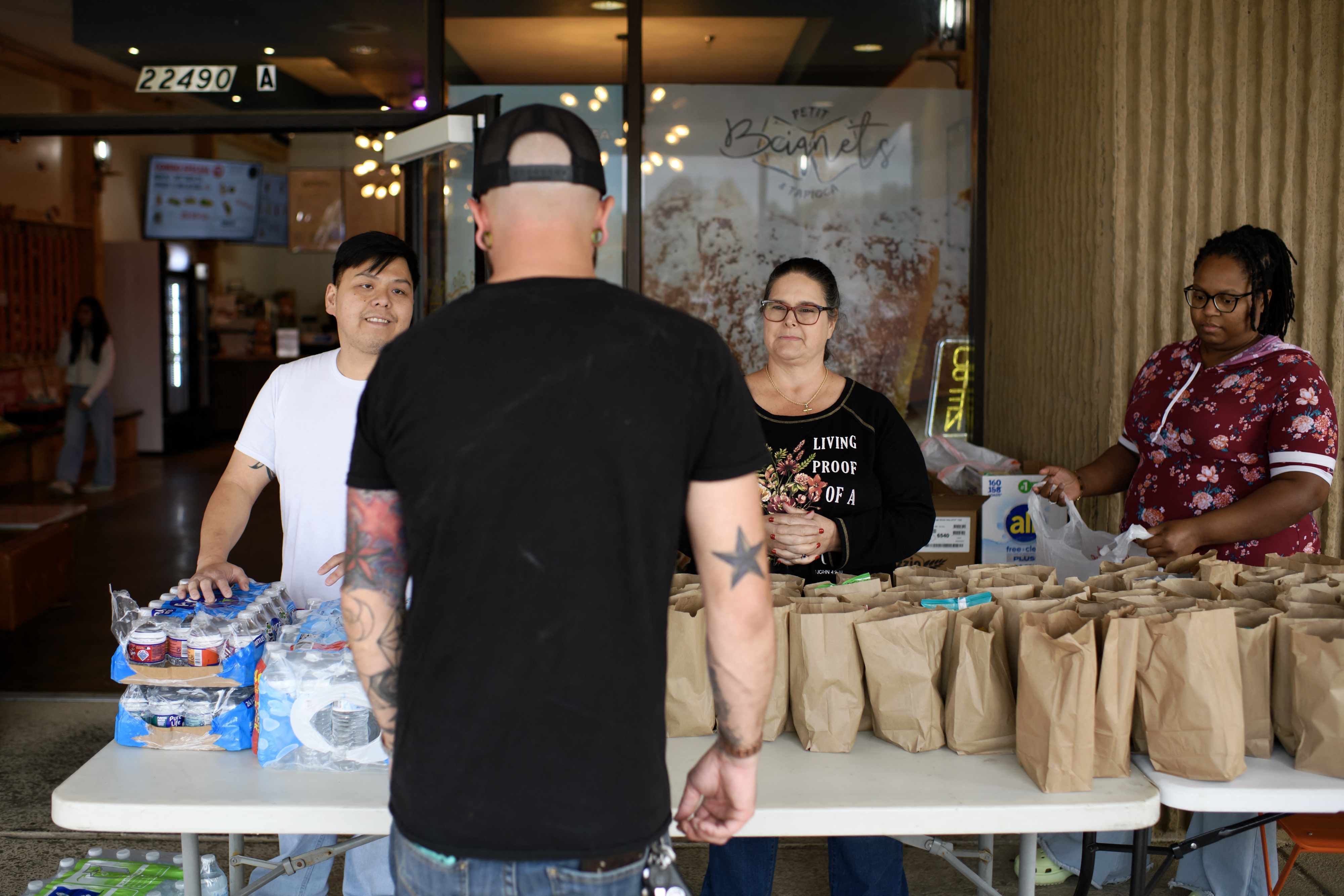
When the federal food stamp program is operating normally, recipients receive money for groceries on their electronic cards on the same day each month.
Under the longest government shutdown in history, many people have not yet received food stamps for November, and they may not receive the benefits for months, according to experts and government officials.
The Trump administration on Nov. 3 said it would issue partial Supplemental Nutrition Assistance Program (SNAP) benefits for November to comply with a court order. The money for the benefits is being drawn from a contingency fund that has $4.6 billion in it.
Because only partial benefits will be paid, states must adjust their food stamp distribution systems after receiving information from the Department of Agriculture (USDA), Patrick Penn, a USDA official, said in a court filing.
Benefits Reduced
The USDA took the first step on Nov. 4, sending a memorandum to states on how to reduce benefits for recipients.
Tables provided in a memo to states showed maximum benefits depending on household size, with the maximum numbers about half of what they normally are. For a household of three, for example, the maximum allotment was $392, down from $768.
“State agencies must take immediate action to implement this reduction,” Penn said in the memo.
Because the changes are unusual and because some states use systems that are decades old, it is not clear how many will be able to make the changes quickly with minimal disruption and how many will experience a range of problems, according to Penn’s court filing.
“For at least some States, USDA’s understanding is that the system changes States must implement to provide the reduced benefit amounts will take anywhere from a few weeks to up to several months,” he said in the court filing.
The administration had been presented with a choice by a federal judge in Rhode Island: Use the contingency funds to partially fund November benefits or use the contingency funds and additional money to fully fund benefits for the month. Officials said they opted against using additional money because it is being saved for nutrition programs for children and pregnant women.
“The Trump administration decision to only issue partial SNAP benefits will delay the benefits going out,” Tracy Roof, who is chair of the University of Richmond’s Department of Political Science and is writing a book about the history of the food stamp program, told The Epoch Times in an email.
“Had the administration decided to issue full benefits, it could have been a quick turnaround. But now states will have to reprogram their delivery systems which could take days, weeks, or even months for some states. How quickly a state can issue benefits depends on how their systems are set up. ... Some can react more quickly than others.”
Some states, including California, have been telling SNAP recipients that they are not sure how long it will take to process and distribute the funds.
Others say recipients can expect benefits soon.
If federal funds are provided this week, then the partial benefits will be loaded onto the electronic cards “by next week, so beneficiaries should check the balances on their cards often,” the North Carolina Department of Health and Human Services said in a statement.
Other states, including Virginia, are using state money to pay SNAP recipients. A number have received funds on the day of the month they usually do.
Will Full Benefits Be Mandated?
USDA officials told McConnell that they would draw only from the contingency fund. They said they did not want to use additional money because of concerns that there would not be enough left for child nutrition programs in the future.
Plaintiffs in the case that prompted the ruling filed a motion on Nov. 4 arguing that taking weeks or months to provide partial benefits does not comply with McConnell’s order.
They said the judge should require the USDA to pay for full November benefits, at a cost of $8.5 billion to $9 billion.
“Because it is clear that Defendants’ plan cannot meet the Court’s directives or adequately remedy Plaintiffs’ harm, the Court should enforce its November 1 order by temporarily enjoining and compelling Defendants to release the unlawfully withheld funding, in its entirety, for November SNAP benefits,” the plaintiffs, who include the New York Legal Assistance Group and the city of Albuquerque, New Mexico, said.
They also said the government’s decision to withhold full benefits is arbitrary and capricious and in violation of federal law and that McConnell could enter a new order finding as much.
“While the agency acknowledged ‘procedural difficulties’ in processing partial benefits, it failed to account for the human cost of that benign-sounding phrase, namely the immense harm to beneficiaries who will go without food assistance during potentially lengthy delays,” they said.
“Nor did it consider the impact on organizations and cities that rely on SNAP to provide emergency food assistance in their communities.”
McConnell set a hearing on the motion for Nov. 6 at 3:30 p.m.
President Donald Trump on Nov. 4 said SNAP recipients would not receive benefits until the government shutdown that started on Oct. 1 ends. White House press secretary Karoline Leavitt told reporters several hours later in Washington on Nov. 4 that the Trump administration is fully complying with McConnell’s order.
“The recipients of these SNAP benefits need to understand it’s going to take some time to receive this money, because the Democrats have forced the administration into a very untenable position,” she said.
Votes on more than a dozen measures that would reopen the government have failed since the shutdown started on Oct. 1, with most Democrats voting no.
Separately, Republicans have blocked legislation that would require full funding of SNAP.
Administration lawyers told McConnell in a filing later on Nov. 4 that the memo and updated tables sent to states show that they are complying wit